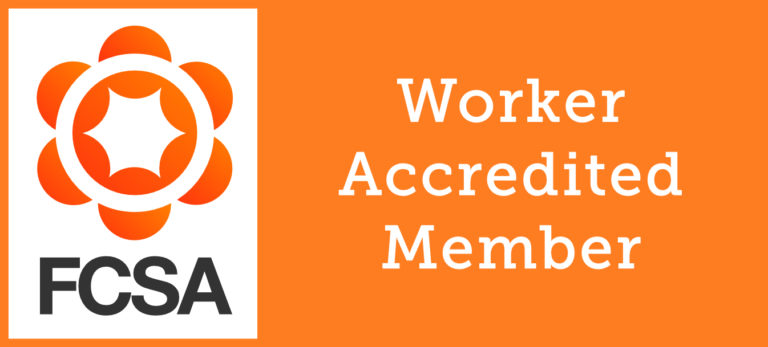The Job Retention Scheme: How Industries Got It Wrong
In addition to infecting over 7 million people worldwide and causing more than 430,000 deaths to date, Covid-19 has spelt disaster for many industries around the world. Unemployment soared across sectors and in the UK, over 8 million workers were furloughed under the Government’s Coronavirus Job Retention Scheme in efforts to maintain business continuity and secure British jobs.
As daily cases steadily reduce and sectors including Hospitality and Retail prepare to reopen their doors, the pandemic situation is no better for thousands of individual workers across the UK. Lack of clear information, communication and legislation have seen the UK’s contractor population experience delays to wage payment and shockingly low take-home furlough payments.
As part of Generate’s initiative to provide expert support and guidance for contractors, our latest update explores how you can ensure your umbrella companies and contractor management providers are best serving you throughout the coronavirus and beyond.
Furlough Payroll: How Industries Got It Wrong
Education
Between March and May 2020, almost 1 in 4 teachers had been furloughed or seen their contracts cancelled, with supply teachers bearing the brunt: 82% of supply teachers are currently on furlough or not in work. Whilst agencies across sectors were working hard to deliver accurate payroll services, unclear guidance, huge financial risks and varying methods of furlough pay calculation resulted in delayed furlough applications to HMRC and significant discrepancies in take-home pay for teachers, with companies drawing their interpretations from the Coronavirus Job Retention Scheme guidance. As well as this, umbrella companies who were operating non-compliantly were not able to take advantage of the scheme, leaving their contractors to bear the consequences.
Healthcare
More than 60,000 contractors have already been affected by the different interpretations of furlough pay, with the Healthcare sector disproportionately impacted. In addition to working in high-risk environments, care workers who become ill or are self-shielding due to health vulnerabilities have in many cases been forced to work under the threat of their wages being withheld. NHS England recently warned GP practices against furloughing any staff, despite the concerns of practices around claiming reimbursement of costs for long-term locums.
Engineering & IT
Contractors working in the private sector have also experienced wage reductions and delays to payment. This meant hundreds of engineers and technicians were denied wages for over a month. At the end of last month, IT contractors were still being informed that they were not eligible for furlough pay – even in situations with no available work – because some umbrella providers were uninformed as to how the Job Retention Scheme worked.
The impact on contractors has already been significant: 40% of teachers are financially worse off now than at the beginning of the year, with many expecting to miss out on up to 20% of their annual pay packets. 1 in 10 care workers knows a colleague who felt forced to continue working rather than self-isolating when necessary in fear of losing their job. Unison reports that some care staff have been told by their employers to use up annual leave or make up time for free when they return to work. Project delays have already reduced the earnings of construction workers, engineers and technicians, and construction companies are set to cut multiple jobs to remain solvent.
Future Changes Planned for the Furlough Scheme
After months of unclarity, the Government confirmed that people who receive regular bonuses should have them accounted for in their furlough pay, rather than just their basic rates. Umbrella companies commonly use a bonus structure to account for varying wages, however, this initially caused great uncertainty for umbrella companies who were desperate to help their contractors. The official government guidance now reads: ‘When variable payments are specified in a contract and those payments are always made, then those payments may become non-discretionary. If that is the case, they should be included when calculating 80% of your employees’ wages.’ Umbrella, payroll and recruitment providers should all confirm that they operate with this principle, publicly and when communicating directly with contractors, and should have evidence that they are following the CJRS guidance.
As non-essential shops begin to open and people start going back to work, the government has outlined its plan to phase out the Job Retention Scheme. However, what protection will be provided to contingent workers whose agencies and umbrella companies can no longer offer support as the cost of the scheme becomes unsustainable?
Throughout June and July, the government will continue to pay 80% of wages up to £2,500 for the hours the employee is on furlough, in addition to employer National Insurance and pension contributions. From 1st July, employers can bring furloughed employees back to work part-time for any amount of time and shift pattern, while still being able to claim from the Job Retention Scheme for the unworked hours.
However, significant changes are planned in the coming months. From 1st August, the government will pay 80% of wages up to a cap of £2,500 for the hours an employee is on furlough but the employers will have to pay the corresponding National Insurance and pension contributions. From 1st September, the grant amount is reduced: the UK government will pay 70% of wages up to £2,187.50 for the hours the employee is on furlough, with employers paying National Insurance and pension contributions and topping up wages to ensure workers receive at least 80% of their wages up to £2,500.
From 1st October, the government will pay 60% of furloughed employee wages up to £1,875, with employers paying National Insurance and pension contributions and topping up wages to 80% of pay up to £2,500. Employers will continue to able to choose to top up employee wages above the 80% total and £2,500 cap for the hours not worked at their own expense if they wish and must pay their employees in full for the hours worked.
How Should Payroll Providers Have Helped Contractors Throughout Furlough?
There are a variety of steps that your provider should have taken to help you through the furlough scheme:
- Communication – Keeping in touch with you at every stage to make you aware of changes and how they will affect you. Keeping their communication streams open and listening to your specific needs to ensure your situation was considered.
- Announcements – Providing regular updates on how the company is responding to legal and market changes
- Fighting for You – Getting involved in Government policy, partnering with industry bodies and lobbying the Government to put your working rights at the centre of Covid-19 policy updates
4 Ways to Find a Payroll Provider that can Properly Manage Your Furlough Pay
Research
The first port of call to research any payroll provider is their company website. Look at their online presence and their blog and news pages: what have they said about the recent furlough mistakes? Ignoring the issue altogether could be a red flag. How specifically do the company state that they are protecting their contractors? A generic statement may sound reassuring but does not prove the company’s ability to fulfil their promises. Look for specific examples of what the business has done to pay their contractors correctly in the past three months. Also, consider the additional support they have provided for their contractors and agencies to understand whether they are capable of helping you in your hour of need.
Confirm Credibility
Is your potential new payroll agency accredited by and a member of the Freelancer & Contractor Services Association (FCSA), the UK’s leading membership body for umbrella companies? FCSA accredited members undergo an annual audit to prove they are compliant with all legislation, eliminating any legal risk for their contractors, and continually improve their services to maintain a high quality of contractor care.
Get in Touch
Contact your potential new provider to speak to them in person. Find out the credentials of the Account Manager(s) you would be allocated and ask about their recent experience in supporting contractors in your industry and situation, particularly during the pandemic and furlough schemes. Do they speak with empathy and honesty? Or are they rattling off a pre-existing script? Check that what the company representative says matches the claims on the company’s website and social channels.
Expert Opinions
Speak to experts in your field, previous recruiters you have worked with and reputable industry organisations. Recruitment consultants speak with hundreds of candidates every day and speak to contractor management companies regularly, so they are exposed to both sides of the coin.
Fighting for Contractor Rights
Since the beginning of the pandemic and the introduction of the furlough scheme, Generate’s expert payroll team have been at the forefront of worker protection.
Generate was one of the first umbrella companies in the UK to secure maximum salary payments for contractors under the furlough scheme. By prioritising contractor care, we ensured our contractors were regularly updated on our position, as we fought on their behalf for fair furlough pay. Once successful, we ensured every eligible contractor received the support they needed, with no additional hoops to jump through. We paid their first set of backdated payments before receiving funds from HMRC, to ensure there were no further delays, and have continued to pay on that basis.
If you are unhappy with how your umbrella company has reacted to the pandemic, or just feel it is the right time for an additional payroll partner, we can help. Contact us on 0207 231 0349 or sales@generate-fs.co.uk.
Contractor Support
If you need help or advice around furlough or employment:
- Speak with your dedicated Account Manager, who is there to listen to your needs and provide a solution tailored to your circumstances.
- Speak with your employer or industry body to find out their response plan to the latest changes.
- Read the UK Government Guidance and Support for Employees During the Coronavirus or advice on Working Safely During the Coronavirus.
- If you are struggling with mental health during this difficult time please reach out to a trusted person or a professional. For online support, please go to:











